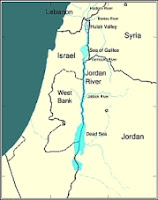The Arab Water Week (AWW) - 05/09 Dec 2010
Water stress is accelerating due to increasing demand for water from an ever growing Arab population, and climate change is compounding the problem. The Millennium Development Goals (MDG) set a target to reduce by half the proportion of people without access to safe drinking water by 2015. “The Arab Human Development report 2009, presents compelling evidence that the burgeoning water scarcity problem in the Arab region presents a serious threat to Human security. Under the umbrella of the League of Arab States (LAS) and in partnership with the Arab Ministerial Water Council (AMWC) and the Jordanian Ministry of Water and Irrigation (MWI), the Arab Countries Water Utilities Association (ACWUA) is organizing the first Arab Water Week. The Arab Water Week (AWW) is the first regional meeting in the Arab region which will tackle water management issues through establishing innovative partnerships and platforms of collaborative work on water issue in the region. The ...



